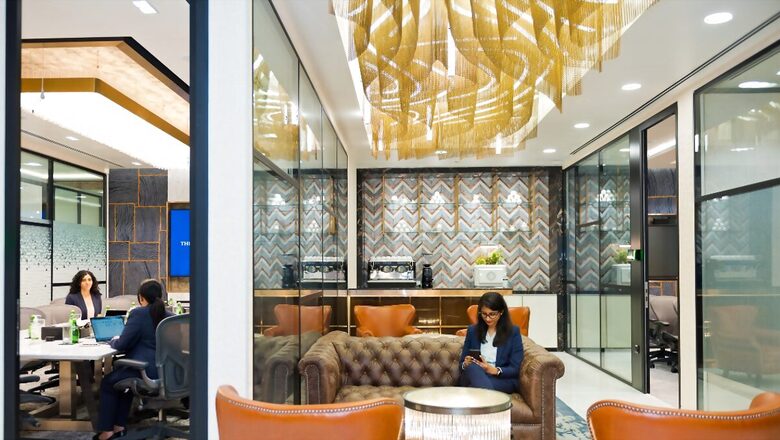
views
In recent years, the concept of traditional office space has evolved significantly, driven by changing business needs, global market volatility and the rise of a more mobile workforce. Flexible workspaces have emerged as a crucial solution, offering companies and individuals the ability to adapt quickly to these evolving requirements. These dynamic spaces are increasingly being recognised for their ability to support the diverse needs of businesses across various sectors and scales, from startups to multinational corporations.
The Smart Office Revolution and Data-Driven Decision Making
The smart office revolution is a game-changer in the flexible workspace industry, transforming how businesses operate. These workspaces are equipped with state-of-the-art technology, such as IoT devices and AI-powered tools, that collect and analyse data in real-time. This data-driven approach provides valuable insights into space utilisation, employee behaviour, and energy consumption, allowing businesses to make informed decisions. By leveraging data analytics, companies can optimise their workspace layout, improve employee satisfaction, and enhance operational efficiency. This technological integration not only fosters a more productive work environment but also aligns with sustainability goals by reducing energy consumption and minimising the carbon footprint.
Diversifying Real Estate Portfolios
One of the most significant advantages of flexible workspaces is their ability to allow companies to diversify their real estate portfolios. Instead of committing to long-term leases for large office spaces that may go underutilised, businesses can opt for more flexible leasing arrangements that cater to their immediate needs. This approach not only reduces the financial risks associated with vacant properties but also provides the flexibility to scale up or down as required. This adaptability is particularly beneficial in today’s fast-paced business environment, where market conditions can change rapidly, and companies need to remain agile to respond effectively.
Optimizing CapEx Efficiency
Capital expenditure (CapEx) efficiency is another critical benefit offered by flexible workspaces. Traditional office setups often require substantial upfront investment in infrastructure, furniture, and technology, which can be a significant financial burden, reducing the agility of any business. Flexible workspaces allow business to optimise capex and diversify their real estate portfolio. This cost-effectiveness enables organizations to allocate resources more strategically, focusing on core business operations and growth initiatives rather than being bogged down by real estate investments.
Increasing Collaboration
Flexible workspaces are designed to foster collaboration and interaction among employees. Unlike traditional office settings, these workspaces often feature open layouts, shared common areas, and various meeting rooms that encourage spontaneous discussions and brainstorming sessions. By breaking down physical barriers and promoting a culture of openness, flexible workspaces enhance teamwork and knowledge sharing. Flexible workspaces are built from the ground up to be resilient, agile and adaptable. Hence, these spaces will continuously reshape and reimagine themselves to keep the workforce at their productive peak. As companies change how they operate, flexible workspaces will adapt in lockstep with such changes.
Making Productivity Location-Agnostic
Flexible workspaces are also instrumental in making productivity location-agnostic. In a world where hybrid work has become increasingly common, the ability to work from anywhere without compromising productivity is essential. Flexible workspaces provide the infrastructure and environment that enable employees to perform at their best, whether they are working from a co-working space, a satellite office, or the main headquarters. This location-agnostic approach not only enhances employee satisfaction but also opens up new opportunities for businesses to tap into a broader talent pool, as geographical boundaries become less relevant.
Flexible workspaces are reshaping the future of work by offering adaptable, cost-efficient, and productivity-enhancing solutions that cater to the needs of businesses and individuals alike. As companies continue to navigate the challenges of an ever-changing business landscape, the demand for flexible workspaces will only continue to grow.
(Inputs by Manish Khedia, Managing Director, West India, South India & Sri Lanka)




















Comments
0 comment